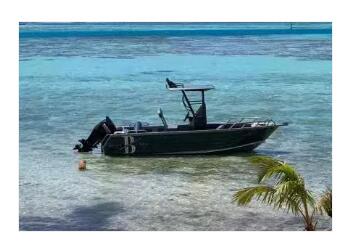Exploring the Durability of Aluminum Fishing Boats: A Comparison with Fiberglass and Wooden Boats
2024-06-06
When it comes to choosing a fishing boat, durability is often a top priority for anglers. After all, a boat that can withstand the rigors of the marine environment and provide years of reliable use is a valuable asset. In this blog, we'll explore the durability of aluminum fishing boats and compare it to fiberglass and wooden boats to help you make an informed decision.
Aluminum Fishing Boats: The Unsung Hero of Durability
Aluminum fishing boats are renowned for their durability and resilience. Aluminum is a strong yet lightweight material that is naturally resistant to rust and corrosion. This makes aluminum boats particularly suitable for saltwater fishing, where the corrosive effects of salt can wreak havoc on other materials. Aluminum boats can withstand the harsh marine environment, including exposure to saltwater, UV rays, and impacts from waves and debris, without suffering from significant damage or deterioration.
In addition to its corrosion resistance, aluminum is also an extremely strong material. Aluminum boats are often welded or riveted together, creating a solid hull that is both sturdy and lightweight. This sturdy construction allows aluminum boats to handle the rigors of fishing, including the weight of fish, tackle, and equipment, without compromising stability or safety.
Fiberglass Boats: A Balanced Option
Fiberglass boats offer a good balance of durability and performance. Fiberglass is a composite material made of glass fibers embedded in a resin matrix. This material is strong and lightweight, similar to aluminum, but it also has some unique advantages. Fiberglass boats are resistant to rot, decay, and corrosion, making them suitable for both freshwater and saltwater fishing.
However, fiberglass boats are not as corrosion-resistant as aluminum boats in saltwater environments. Over time, the resin matrix can degrade and expose the glass fibers to corrosion. Additionally, fiberglass boats are more susceptible to scratches, dents, and cracks than aluminum boats. These imperfections can compromise the structural integrity of the boat and require repair or replacement.
Wooden Boats: A Classic Choice with Challenges
Wooden boats have a rich history in fishing and boating culture, and they offer a unique aesthetic appeal. However, wooden boats also have some significant durability challenges. Wood is a natural material that is susceptible to rot, decay, and water damage. Even with regular maintenance and sealing, wooden boats require constant attention to prevent moisture damage and keep them in good condition.
Additionally, wooden boats are not as strong or sturdy as aluminum or fiberglass boats. They are more prone to dents, scratches, and cracks, which can compromise their structural integrity. Wooden boats also tend to be heavier than aluminum or fiberglass boats, making them more difficult to maneuver and transport.
In Conclusion
When it comes to durability, aluminum fishing boats offer significant advantages over fiberglass and wooden boats. Aluminum's natural corrosion resistance and sturdy construction make it a reliable choice for both freshwater and saltwater fishing. Fiberglass boats offer a good balance of durability and performance but are not as corrosion-resistant as aluminum in saltwater environments. Wooden boats, while beautiful and classic, require more maintenance and attention to prevent damage and deterioration. Ultimately, the best choice of boat material depends on your specific needs, preferences, and budget.



